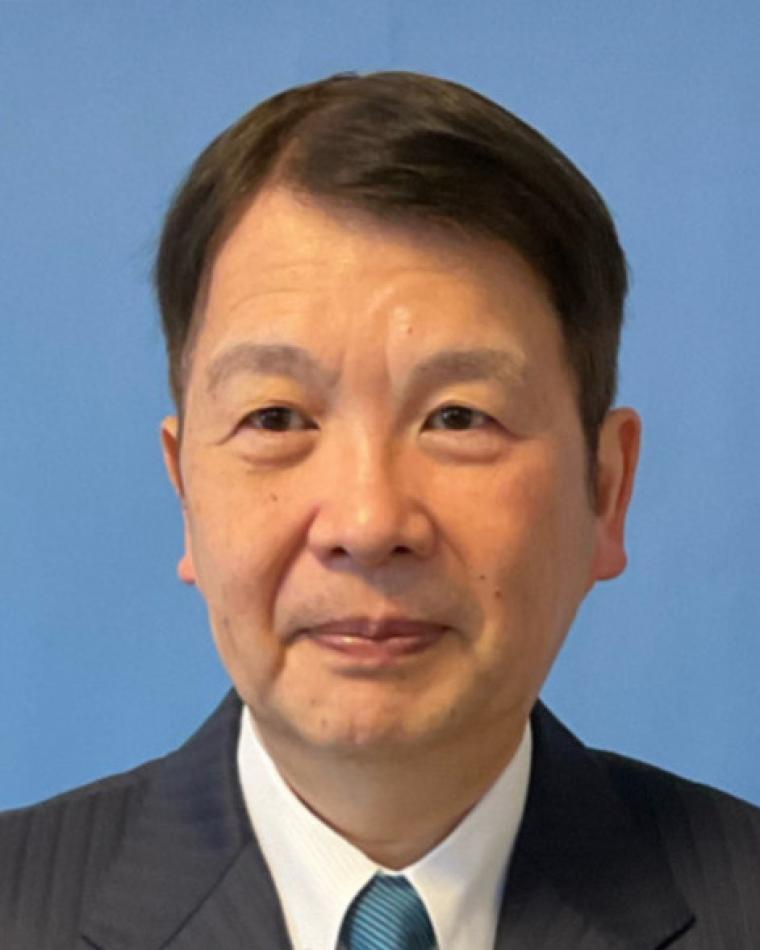KEYNOTE SPEAKERS
PEET 2025 Keynote Speakers

Prof. Mohamed Benbouzid
University of Brest, France
Fellow, IEEE & IET
Mohamed BENBOUZID completed his Ph.D. in electrical at the National Polytechnic Institute of Grenoble, Grenoble, France, in 1994. He further earned his Habilitation à Diriger des Recherches degree from the University of Amiens, Amiens, France, in 2000.
Following the completion of his Ph.D., Dr. Benbouzid joined the University of Amiens, where he held the position of Associate Professor in electrical engineering. Since September 2004, he has been affiliated with the University of Brest, Brest, France, where he currently serves as a Full Professor in electrical engineering.
Prof. Benbouzid primary research interests and expertise include control of electric machines, variable-speed drives for traction, propulsion, and renewable energy applications, and fault diagnosis of electric machines.
Prof. Benbouzid is an IEEE Fellow and a Fellow of the IET. He is the Editor-in-Chief of the International Journal on Energy Conversion and the Applied Sciences (MDPI) Section on Electrical, Electronics and Communications Engineering. He is a Deputy Editor for the IET Renewable Power Generation.
Speech Title: Towards Resilient Energy Conversion: Advances in Fault-Tolerant Electric Drives
Abstract: The increasing demand for safety, reliability, maintainability, and survivability in power conversion and supply systems has led to substantial research in the development of resilient and fault-tolerant systems. These systems are specifically designed to withstand certain faults or to promptly adapt their control strategies (fault-tolerant control) in order to maintain predefined levels of performance in terms of quality, safety, and efficiency. This need for enhanced resilience has spurred significant advances in the domain of electric machine drives. While much of the existing research has traditionally focused on faults within the machine, drive, or power supply components, current trends are expanding to include faults related to sensors and specific application environments. In fact, the overall performance of electric motor and generator drives—especially those with feedback control structures—relies not only on the health of the machine itself but also on the condition and accuracy of associated components such as encoders, voltage sensors, and current sensors. This keynote will explore recent progress in fault-tolerant control and resilience for electric machines and drives, with a particular emphasis on critical applications such as tidal stream turbines. These systems operate in submerged environments and must endure extreme loads and harsh underwater conditions, making resilience and fault tolerance essential to their reliable operation.
Prof. Hiroyuki Mori
Meiji University, Chiyoda-Ku, Japan
Fellow, IEEJ
Hiroyuki Mori earned his B.Sc., M.Sc., and Ph.D. degrees in Electrical Engineering from Waseda University in Tokyo, Japan, in 1979, 1981, and 1985, respectively. From 1984 to 1985, he worked as a Research Associate at Waseda University. In 1985, he joined the Department of Electrical Engineering at Meiji University (MU) in Japan. He became a Professor in the Department of Electrical Engineering in 1995 and served as a Professor in the Department of Network Design at MU from 2013 to 2025. Since 2025, he has been a visiting researcher at the MU Research Institute of Smart City Innovations and is the founder of Polaris Grid, Inc. in Tokyo, Japan. He was a Visiting Associate Professor from March 1994 to May 1995, a Visiting Professor from April 2017 to March 2018, and a Visitor from June 2022 to October 2022 at Cornell University in Ithaca, NY, USA.
Additionally, from April 1997 to March 2002, he served as the Division Director of Evolutionary Learning Systems at the MU High Technology Research Center for Artificial Life, which MEXT supported. From April 2005 to March 2010, he served as the Director of the MU High Technology Research Center for Sustainable Energy and Materials supported by MEXT. From April 2007 to March 2012, he was a member of the MU Global COE program on Formation and Development of Mathematical Sciences Based on Modeling and Analysis supported by MEXT.
Dr. Mori has held various leadership roles in international research activities, including serving as the Technical Committee Chair of IEEE ANNPS 1993 in Yokohama, Japan. He was the Chair of the IEEE CAS Technical Committee on Power Systems and Power Electronics from June 1993 to May 1994. Additionally, he was the General Chair for IEEE PES ISAP2013, IFAC (International Federation of Automatic Control) CPES2018 in Tokyo, Japan. From January 2020 to December 2022, he chaired the IEEE PES Analytic Methods for Power Systems Committee (AMPS) Intelligent Systems Subcommittee (ISS). He also served as the Secretary of the IEEE PES AMPS ISS Working Group on Open Data and IFAC TC6.3 (Power & Energy).
Dr. Mori has been recognized as an IEEJ Fellow since 2019 and was elevated to the status of IEEJ Professional in 2021. He received the Working Group Recognition Award for New Technologies and Practical Applications in 2006, as well as the Modern Heuristics Optimization in 2022, the IEEE PES AMPS Subcommittee Chair Recognition Award in 2023, and the IEEJ Outstanding Achievement Award in 2024. His research interests include power system operation and planning, active distribution automation, and applications of intelligent systems such as Deep Neural Networks, Evolutionary Computation, Fuzzy Logic, and Data Mining. He is a member of IEEJ, JSAI, IEEE, and ACM.
Speech Title: Quantum Evolutionary Computation with Applications to Power Systems
Abstract: This talk provides the applications of Quantum Evolutionary Computation in Quantum Computing to power systems. The emergence of Quantum Innovations has attracted considerable attention from the computing community, marking a significant paradigm shift in technology. This field encompasses various engineering disciplines, including Quantum Computing, Quantum Cryptography, Quantum Communications, Quantum Sensors, Quantum Control, and Quantum Materials. Among the different topics within Quantum Computing, Quantum Artificial Intelligence and Machine Learning have become particularly prominent. This talk highlights recent advancements in applying Quantum Evolutionary Computation to power systems. Specifically, it focuses on Quantum Brain Storm Optimization (QBSO), which serves as an extension of Brain Storm Optimization (BSO) and is characterized by high-performance capabilities in Evolutionary Computation. QBSO is based on Quantum Superposition to create new solution candidates in Evolutionary Computation. Several enhanced methodologies related to QBSO are discussed, along with their relevant applications to power systems.
Prof. Michael Negnevitsky
University of Tasmania, Australia
Fellow, IEEE
Professor Michael Negnevitsky is Chair in Power Engineering and Computational Intelligence and Director of the Centre for Renewable Energy and Power Systems, University of Tasmania, Australia. The primary focus of his research is smart grids, power system security, demand response, and isolated and remote area power systems with high renewable energy penetration. Professor Negnevitsky authorised more than 500 research publications and received 4 patents for inventions. He is Fellow of IEEE, Fellow of Engineers Australia and Fellow of IARIA. Professor Negnevitsky is Chair of the IEEE PES Energy Development and Power Generation Committee, Chair of the IEEE PES International Practices Subcommittee, Chair of the IEEE PES Working Group on High Renewable Energy Penetration in Remote and Isolated Power Systems, Member of CIGRE AP C4 (System Technical Performance) and CIGRE AP C6 (Distribution Systems and Dispersed Generation), Australian Technical Committee.